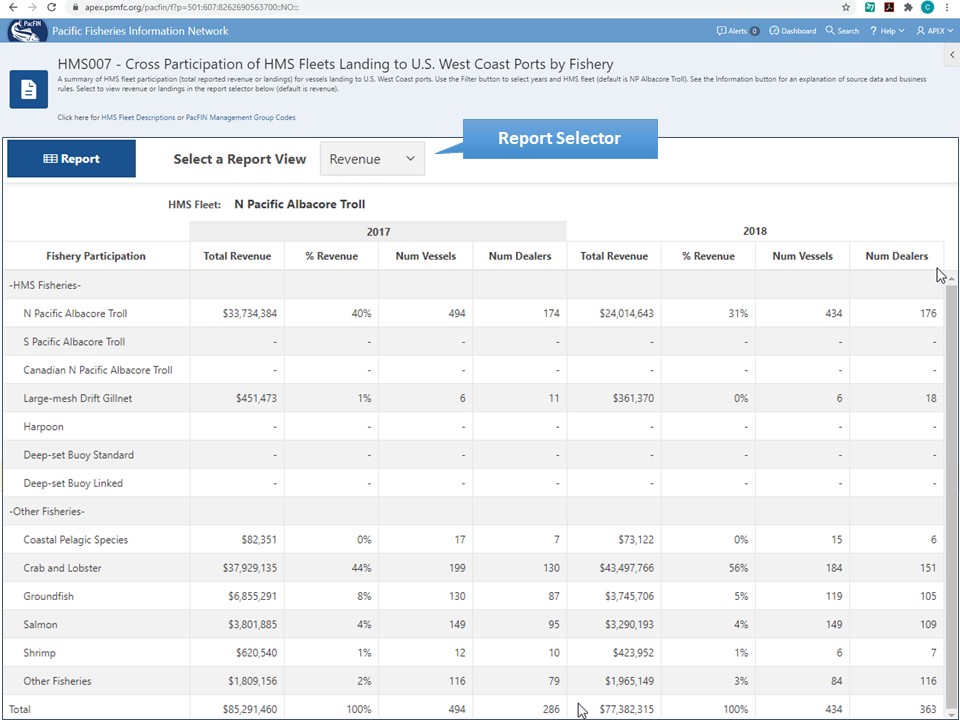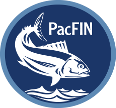Partner Perspective: HMS Fleet Profile Reports
Abigail Harley & Amber Rhodes – NOAA West Coast Regional Office
Fisheries targeting highly migratory species (HMS) off the West Coast of the United States have experienced substantial changes in social and fishery conditions over time. Fishery stakeholders have requested that managers take into account fishing portfolios (dependence) when considering proposed regulations on HMS fleets (or particular gear-types). For example, portfolio information could be used to assess whether, when closing fishing for a particular gear type or species, the affected fishermen have experience fishing with other gear types and or for other species in lieu of the closed fishery. Having this information available also helps regulatory writers satisfy federal review requirements to assess social and economic impacts of proposed federal actions.
A team from the West Coast Region Sustainable Fisheries Division, PacFIN, and the Pacific Fishery Management Council collaborated to summarize commercial fishing data from California, Oregon, and Washington into a set of tables that provide detailed information on cross participation of HMS fleets in other West Coast fisheries (HMS and non-HMS). The suite of reports includes annual summaries of the numbers of vessels and processors, revenue, and landings as well as the percent of the total participation in terms of landed weight and revenue for each fishery. This fishing portfolio is summarized based on the catch of HMS and non-HMS fisheries (e.g., salmon, coastal pelagics, and groundfish) that are landed to the U.S. West Coast (see example below). This information is also broken down by geographic port region to convey the fleet’s contributions to coastal communities.

The new reports benefit the Council, NMFS, and stakeholders as they consider potential changes in fishery management and regulations. The tables in the new reports enable quantitative assessments of the impacts of proposed changes on affected fishery participants. The confidential information in the tables is password-protected and will update on an ongoing basis. Non-confidential versions of the tables are planned and will expand access to HMS fishery profile information to all stakeholders. The availability of this information will assist the Council and NMFS in completing high quality, required socio-economic analyses of proposed actions. The project team plans to work with the Council and management team to potentially integrate HMS fishery profile information into the annual Stock Assessment and Fishery Evaluation reports.
These reports are undergoing final validations and will be made publically available shortly. For more information regarding the HMS fleet profile reports, please contact Jenny Suter.
